| Sharing the Georgian Experience with Tajik Specialists, Involved in the Process of Monitoring the Implementation of Anti-corruption Strategy |
Open Society Institute – Support Foundation in Tajikistan |
2014 |
$5,500 |

Project Title: Sharing the Georgian Experience with Tajik Specialists, Involved in the Process of Monitoring the Implementation of Anti-corruption Strategy.
Project Funded By: Open Society Institute – Support Foundation in Tajikistan
Project Budget: 5 500,00 USD
Project Duration: January 7, 2014 – January 31, 2014
Partners: Center of Anti-corruption Education and Support of Tajikistan
Project Description:Project aims at sharing the Georgian experience and making the Tajik colleagues familiar with the anti-corruption reforms and new projects that Georgia is implementing.
Project Activities: Within the frames of the project, specialists involved in the monitoring of anti-corruption strategy, will visit Tbilisi. During the visit, delegates will conduct meetings with the representatives of public institutions, NGOs and media. Tajik colleagues will be made familiar with the electronic procurement and public service system and concept of Service Halls; as well as the electronic projects implemented with the aim of improving the human resource management, legal amendments and future strategy.
Round table discussion will be conducted with the representatives of civic sector and media to talk about the steps taken by Georgia for fighting against corruption and discussing the current challenges.
Contract
Grant agreement
|
Project aims at sharing the Georgian experience and making the Tajik colleagues familiar with the anti-corruption reforms and new projects that Georgia is implementing.
View more →
|
| State-owned enterprises (SOE) and their efficiency in Georgia; Focus: Agriculture Sector |
EWMI / USAID |
2013-2014 |
$43,052.10 |
 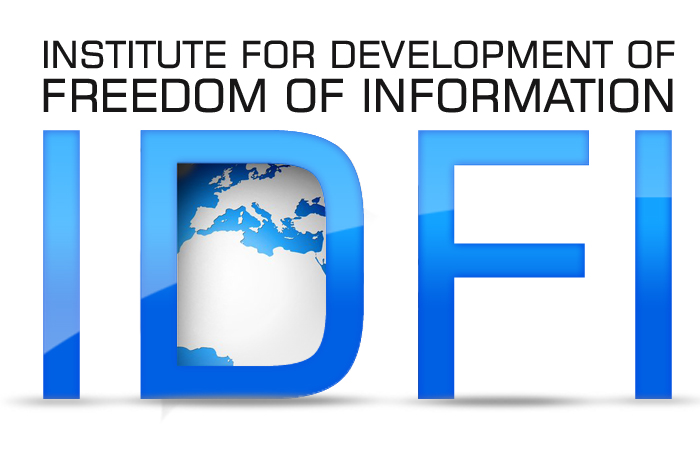 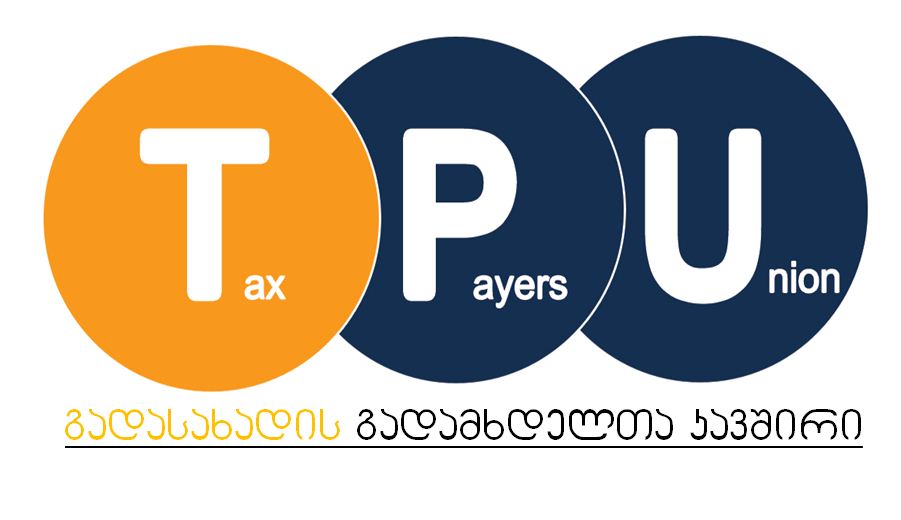
Project Title: State-owned enterprises (SOE) and their efficiency in Georgia - Focus: Agriculture Sector
Project Funded by: “East-West Management Institute" (EWMI) program “Public Policy, Advocacy and Civil Society Development in Georgia” (G-PAC)
Project Budget: USD 43,052.10
Project Duration: December 02.2013 – July 01. 2014
Partner Organizations: Tax Payers Union, Ministry of Agriculture of Georgia
Project Description:
Institute of Development of the Freedom of Information (IDFI) in partnership with the taxpayers Union and the Ministry of Agriculture of Georgia, is implementing project "State-owned enterprises (SOE) and their efficiency in Georgia; Focus: Agriculture Sector".
The main purpose of the project is to conduct a study on state-owned enterprises (SOE) whose shares of 50% or more are under direct or indirect ownership of the state. The research aims to reveal the effectiveness and efficiency of the SOE’s and expediency of Government ownership. Based on the research results, the research team will offer the recommendations to Government bodies. Also project aims on elaborating and advocating for recommendations on improvement of transparency of state owned enterprises.
Project Objectives
- Project aims at increasing transparency of the sector and initiating public discussions about the role and operational purposes of the SOEs. This will assist public servants, experts, and other stakeholders in further analyses.
- Study the current and past financial conditions of SOEs, in order to make proper and intelligent decisions about these SOEs in future.
- Prepare general analysis about existing market competition in the agriculture sector, and what is the role of SOEs in this sector.
- Prepare recommendation package for the Government about future policy related to certain SOEs.
Project Activities
- Audit reports will be studied and the information about the SOEs will be obtained.
- High officials, heads of the enterprises, farmers, representatives of the private sector and experts will be interviewed in Tbilisi and the regions, where SOEs are located.
- Discussions will be conducted in the round table format for the experts, decision makers and the representatives of the private sector.
- Project team will study the legal bases that ensure the growth of transparency of SOEs and elaborate recommendations.
- Meeting with the representatives of the government and parliament will be organized in order to make them familiar with the outcomes of the project and the recommendations.
Contract
Grant agreement
|
The main purpose of the project is to conduct a study on state-owned enterprises (SOE) whose shares of 50% or more are under direct or indirect ownership of the Government. The research aims to reveal the effectiveness and efficiency of the SOE’s and expediency of Government ownership. Based on the research results, the research team will offer the recommendations to Government bodies.
View more →
|
| Pilot International Survey on Governmental Online Openness |
Freedom of Information Foundation |
2013-2014 |
0 |
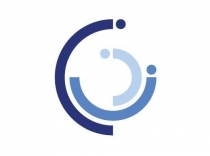   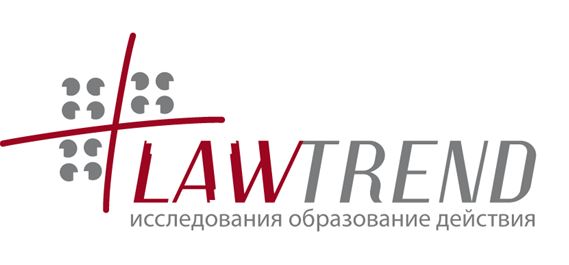
Title of the Project: Pilot International Survey on Governmental Online Openness
Project funded: Volunteer project
Project Budget: 0 USD
Project Duration: December, 2013 – August, 2014
Coordinator Organization: Freedom of Information Foundation (Russian Federation)
Partner Organizations: Institute for Development of Freedom of Information (Georgia),
“Lawtrend” Legal Transformation Center (Republic of Belarus),
National Security Archive at George Washington University (the United States of America)
Description of the project:
In an attempt to create a worldwide measure for the openness of governments NGO representatives of Russia, Georgia, USA and Belarus organized a pilot survey on the basis of an already-completed method of grading the openness of government websites. The survey is based on measures similar to parameters (categories of information which must be published on the websites, in accordance with regulatory requirements and expertise) measured according to a set of criteria (availability, degree of completeness, degree to which it is kept up to date, ease of navigation etc).
The main coordinator organization of the initiative was Freedom of Information Foundation, based in Russia. It should be noted that since 2004 the Foundation has been conducting an audit of the websites of Russian governmental organisations. Additionally, in 2010 they launched an automated information system, Infometer, which optimizes the work of experts on evaluating websites by minimizing the possibility for error. The basis of the system is software written by experts at the Foundation with an open code, which you can adapt to any other survey method of web-content analysis, and so localize it for other countries. The survey method and the Infometer system make together an effective instrument for the assessment of the governmental openness, which has proved itself in Russia, and they wished to try it in the framework of a comparative international survey.
Grant agreement
|
In an attempt to create a worldwide measure for the openness of governments NGO representatives of Russia, Georgia, USA and Belarus organized a pilot survey on the basis of an already-completed method of grading the openness of government websites. The survey is based on measures similar to parameters
View more →
|
| Public Information Database - www.opendata.ge 2013-2015 |
Open Society Foundations and Open Society Georgia Foundation |
2013-2015 |
$151,085 |
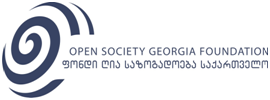 
Project Title: Public Information Database - www.opendata.ge
Project Funded: Open Society Foundations (OSF) (75 542,5 USD) and Open Society Georgia Foundation (OSGF) (75 543 USD)
Total Project Budget: $151 085
Project Duration: 1 October, 2013 - 1 October, 2015
Project Description: The implementation of the idea started in 2010 with the pilot project “Public information on-line database – Public information registry”, which was continued two times – in March 2011 and June 2012.
Project Goal: The goal of the project is supporting of the development of freedom of information by increasing level of accountability of state authorities and civic engagement in decision-making process and public monitoring and control over the government.
Project Objectives: With the project “Public Information Database – www.opendata.ge” IDFI addresses three main objectives:
- Awareness raising (stakeholders & civil society)
- Advocacy campaign (FOI changes)
- Watchdog activities.
Project Activities:
1.1. Research Activities: publishing analysis of public information
As the last three years of implementation has seen gradual development of analytical capabilities (e.g. “Freedom of Information Guidebook”, about 90 articles on Opendata Blog, researches on special transfers to regions before 2012 Parliamentary Elections; comparison of FOI legislation in Serbia and Georgia; Construction costs of the new Parliament building in Kutaisi; comparison of FOI legislation in Croatia and Georgia; Commissioner and Openness of Public Information - Overview of the Worldwide Practice etc.), and since it has proved to attract much more public interest, citizen engagement and media coverage, IDFI intends to further extend the research component of the project. This will be achieved with the following steps:
- Further updates on the analytical blog
- Publication of researches and reports on more comprehensive issues
- Preparing policy papers on ongoing issues
- Preparing policy analysis and evaluation
- Editing guidebook to include all updates and legislation changes
1.2. Public Awareness Campaign:
For increasing public awareness IDFI continues proactive strategies, in particular:
- Using social networks (sharing news, Facebook, Twitter and opendatablog)
- Constant informing and engagement of coalition for media advocacy and other nongovernmental coalitions;
- Co-operated activities of the NGO sector;
- Public surveys;
- Civic and regional NGO engagement;
- Cooperation/engagement with international NGOs.
- Focus group discussions
- Meetings
- Suggestions for FOI requests (web-site, Opendata Blog, e-mail, telephone, personal meeting etc.)
Distribution-popularization of information will be made through the following sources:
- Sharing the information through social networks and public surveys;
- E-informing of database users about added information;
- Organizing introductory meeting with society, events in regions of Georgia;
- Sharing information added on database by using the informational resources of NGOs, involved in the project;
- Informing media and press about uploaded information on database through mailing list;
- Organization of press conferences, meetings, round tables, discussions for sharing existing problems, experience and trends revealed in the process of implementation of the project;
- Preparation and distribution of informational flyers and videos regarding the issues of freedom of information;
- Distribution of social advertisement regarding the database in the internet space.
- Provide information to representatives of NGOs, funds, networks.
1.3. Educational activities:
In the framework of the project, IDFI plans to hold meetings in regions with local society and representatives of media. Population of the regions will be informed about activities of IDFI, the project team will carry out discussions about the importance of accountability and transparency of state authorities, importance of civic engagement and other interesting issues. Also, IDFI will assist to local media and civil society organizations in the case of rejection or ignore of public information requests, will assist to fill the complaint against governmental organizations and participation in trials. These activities will support to civic engagement and establishment of civil society.
2.1. Legal Practice & Reform:
IDFI will submit administrative complaints against governmental agencies, in the case of ignoring or rejecting request of information. Resonant cases will be done about particularly important cases (abuse in court instances and sharing). The cases will be actively shared through media and press.
The Institute actively continues developing and advocating those legislative initiatives, which will be related to the availability of public information. 2013 should be one of the most critical periods to this end, as the government plans, in the frameworks of the “Open Government Partnership”, to both refine Article 3 of the General Administrative Code of Georgia (freedom of information) and to look over existing related legislation. The ideas of creating a separate FoI legislation and establishing the institution of a FoI commissioner suggested by the IDFI is being actively discussed at this time. The monitoring of the process of requesting and receiving public information electronically in 2013 will also be important. In this direction, the project team continues actively working on relevant studies and organizing meetings.
The research findings and the recommendations will be provided through individual meetings with the governmental institutions. Thus, individual face-to-face contacts will be the main form of interaction for communicating the recommendations. The research findings, will be presented in more detail during the presentations. As for the public discussions and meetings with NGOs, media and target group representatives, they will be arranged both to gain more insight about the specific topics of the project, and more importantly, to provide them with the tentative results and/or expectations of the project. These meetings and discussions may be either divided according to target groups, e.g. representatives of NGOs, media representatives, or be mixed. As for the main governmental stakeholders, the persons responsible for releasing public information will be the main stakeholders.
2.2. Advocacy Strategy: participating in policy changes, using existing expertise for better informed policy decisions
IDFI has good experience of promoting of its recommendations in the Public Sector and this is mainly arranged by active conversations and meetings. Our previous experience lets us think that the recommendations elaborated through the proposed project will be interesting for all public institutions and they will actively cooperate with us. Also, for our project it is very necessary to involve civil society expertise in all stages of the project implementation.
So, organized meetings will be aimed at informing the civil society and getting their feedback on researched and audited materials. The meetings will mostly take place in the regions. Focus group discussion method will be used, as they enable to grasp a variety of topics in little time. Participants of focus group discussions will be major players in Georgian civil society – CSOs, the media, students, activists etc. As a result of these discussions IDFI will receive updated information on the actual problems and topics needed more attention, which can be used in public information requests.
Also, flyers, publication, advertisements, social videos will be created with the aim to further promote the outcomes of the project. The videos will be prepared with a focus on introduction of those tools that could be used by citizens in requesting the public information; the flyers will include short information about the rights and tools of FoI e-requesting, the publications will include more detailed results of the research process. As for the advertisements, these will be used to promote the outcomes of the project, such as the blog, social videos or the www.opendata.ge. Such banners will be used in order to better advertise the project and ensure wide outreach to the civil society. As for the means of distribution, the commercials will be placed on a popular web-sites, social videos will be uploaded to the YouTube channel, the blog, IDFI web-sites, will be shared on social media. The publications and flyers will be made available on the presentations of the project. Besides, the flyers will be distributed either with focus general outreach, e.g. public places, or specific target groups, e.g. universities.
3.1. Coalition Activities: technological improvement of Web-Page
Within the framework of the project supported by Open Society Institute and Open Society Georgia Foundation, carried out by the Human Rights Information and Documentation Systems, International (HURIDOCS) is planed technical improvement, which is the opportunity for NGOs (Georgian Young Lawyers’ Association, Transparency International Georgia, Green Alternative) interested in access to public information to upload public data on www.opendata.ge themselves, which in turn, makes public database as an universal e-resource. In the event of successful implementation of the mentioned concept, the Public Information Database will become a consolidating source for the data of the NGOs working in this direction in Georgia. Reformation as a unified database, improvement of the search system and the unification of statistical data will give even more importance to www.opendata.ge and will strengthen the advocating and strategic mechanisms of the organizations participating in the project.
3.2. Awards: nominations for the most accountable and closed public authorities;
One of the best ways to attract interest of public, media and state agencies to the project and to activities under the project is the award of nominations for the most accountable and closed governmental organizations.
Awards ceremony established by IDFI in 2012 for the most accountable and closed governmental organizations gained huge public and media interest after the presentation of the project results on April 12th, 2012. Representatives of public authorities, media and civil society attended the award of nominations. On September 12, 2013 IDFI has awarded public authorities according to the results of 2012-2013. IDFI plans on continuing tradition of awards, since it has become very prestigious and can be seen as additional incentive for ensuring access to public information among public authorities of Georgia. Besides, the Institute considers it very important to cooperate with those state authorities who got the negative award. It will be additional motivation for them to improve its place and level of transparency among the state institutions. This practice of awards ceremony is actively used also by the partner organization (The National Security Archive - “Rosemary Award” and Access to Information Program – “Golden Key and Golden Padlock”).
3.3. Development of bilingual FOI database
Permanent update of information on the web-page is one of the important components for successful implementation of the project and makes basis for other analytical, advocacy and awareness-raising activities. On the basis of inculcated practice, requesting of public information from all public authorities of Georgia will be continued (approximately 230 administrative bodies).
Informational provision of database will be provided from the following sources:
- According to the FoI requests, public information research and upload on web-resource;
- From the open sources (e-version of Civil Service Bureau and State Procurement Agency);
- Upload official information received from the NGOs and citizens (indicating of the source).

Grant agreement
|
The goal of the project is to support the development of freedom of information by increasing level of accountability of state authorities and civic engagement in decision-making process and public monitoring and control over the government.
View more →
|
| Promoting Internet freedom in South Caucasus |
Embassy of the Kingdom of the Netherlands in Georgia and Armenia |
2013-2014 |
€18,400 |
 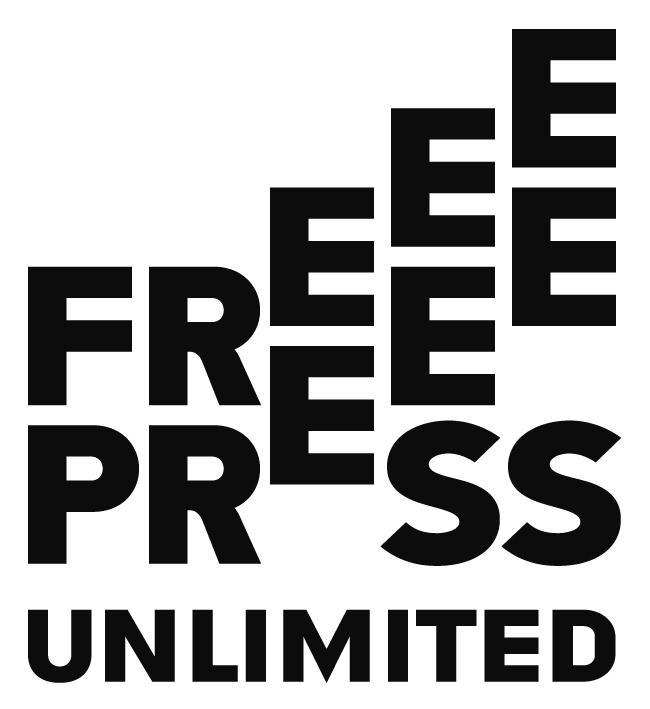 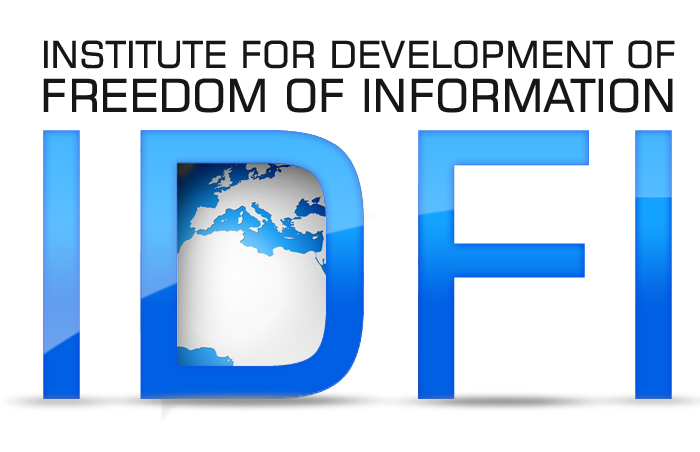 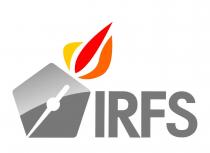 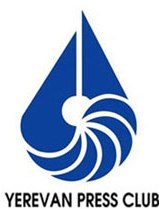
პროექტის სახელწოდება: “კანონმდებლობის გაუმჯობესება და საზოგადოებრივი ცნობიერების ამაღლება ინფორმაციის თავისუფლების საკითხებში”
პროექტის დაფინანსება: UშAID, დემოკრატიული მმართველობა საქართველოში პროგრამა (G-3)
პროექტის ბიუჯეტი: 182 038,01ლარი
პროექტის ხანგრძლივობა: 2013 წლის ივნისი - 2014 წლის იანვარი
პარტნიორი ორგანიზაციები: საერთაშორისო გამჭვირვალობა-საქართველო (თI) და ადამიანის უფლებების სწავლების და მონიტორინგის ცენტრი (EMჩ)
პროექტის აღწერა: “ინფორმაციის თავისუფლების განვითარების ინსტიტუტი” (IDFI) ამერიკის შეერთებული შტატების საერთაშორისო განვითარების სააგენტოს (UშAID) პროგრამის „დემოკრატიული მმართველობა საქართველოში (G-3)” ფარგლებში ახორციელებს კოალიციურ პროექტს: “კანონმდებლობის გაუმჯობესება და საზოგადოებრივი ცნობიერების ამაღლება ინფორმაციის თავისუფლების საკითხებში”.
პროექტი მიზნად ისახავს ხელი შეუწყოს საქართველოში საჯარო ინფორმაციის ხელმისაწვდომობის ეფექტური მექანიზმების და პროცესების დანერგვას, სამოქალაქო საზოგადოებისა და მთავრობის თანამშრომლობის ხელშეწყობას და მოქალაქეთა ცნობიერების ამაღლებას საჯარო ინფორმაციის მოთხოვნა/მირების წესებსა და პროცედურების შესახებ.
პროექტის ფარგლებში საჯარო ინფორმაციის ხელმისაწვდომობის პრაქტიკის, საკანონმდებლო გარანტიების, სამთავრობო სტრუქტურებისთვის ინფორმაციის თავისუფლების საპილოტე ვებ-გვერდების შექმნას, საჯარო ინფორმაციის გაცემის უზრუნველყოფაზე პასუხისმგებელი პირებისთვის ინფორმაციის გზამკლევის (სახელმძღვანელოს) გამოცემას, საჯარო დაწესებულებების ანგარიშვალდებულებისა და გამჭვირვალობის გაზრდის მიზნით საქართველოში, ასევე დაგეგმილია სხვადასხვა სოციალური ჯგუფებისთვის ინფორმაციის თავისუფლების შესახებ საგანმანათლებლო შეხვედრების ჩატარება.
პროექტის ამოცანები: პროექტის ფარგლებში IDFI, პარტნიორი ორგანიზაციების - თI, EMჩ, ადგილობრივი თუ საერთაშორისო ექსპერტების ჩართულობით დაეხმარება საქართველოს მთავრობას რეკომენდაციებით, შექმნას საჯარო ინფორმაციის გაცემის, პროაქტიული საჯარო ინფორმაციის გამოქვეყნების გაუმჯობესებული და ეფექტური მექანიზმები. პროექტი ასევე ითვალისწინებს სხვადასხვა სოციალური ჯგუფების ინფორმირებას და მათი ცნობიერების ამაღლებას გადაწყვეტილების მიღების პროცესებში.
აღნიშნული ინიციატივით სამოქალაქო საზოგადოების ორგანიზაციებს ეძლევათ საშუალება ახლოს ითანამშრომლონ პრემიერ მინისტრის აპარატთან, იუსტიციის სამინისტროსა და სხვა სამთავრობო დაწესებულებებთან დისკუსიების ფორმატში. ასევე მოხდება საზოგადოებრივი დისკუსიების ორგანიზება მოქალაქეების ცნობიერების ამაღლების მიზნით, მათი უფლებების შესახებ საჯარო ინფორმაციის მოთხოვნასთან დაკავშირებით.
მთავრობის, სამოქალაქო საზოგადოების ორგანიზაციების და მოქალაქეების ჩართულობა საჯარო ინფორმაციის ხელმისაწვდომობის საკითხებში მნიშვნელოვანი პროცესია ასევე პარტნიორობა ღია მმართველობის საქართველოს მთავრობის სამოქმედო გეგმის ფარგლებში. შედეგად, მთავრობის მიერ ნაკისრი ვალდებულებები გამჭვირვალეობის და ანგარიშვალდებულების მოქალაქეებთან უკეთესი თანამშრომლობის მნიშვნელოვანი ნაწილს წარმოადგენს.
პროექტის ფარგლებში დაგეგმილი ღონისძიებები:
•პარტნიორი ორგანიზაციების - თI, EMჩ, ადგილობრივი და საერთაშორისო ექსპერტების, დაინტერესებული ჯგუფების სამუშაო ჯგუფის შექმნა, რომლის მიზანია პროექტის ფარგლებში დაგეგმილი აქტივობებისთვის ეფექტური რეკომენდაციებისა და სტრატეგიული გეგმის შემუშავება.
•კონტრაქტორ Iთ კომპანიისთვის საჯარო ინფორმაციის პროაქტიულად გამოქვეყნების სარეკომენდაციო პაკეტის შემუშავება, რის მიხედვითაც 3 სამთავრობო ვებ-გვერდზე უზრუნველყოფილი იქნება საჯარო ინფორმაციის ქვე-გვერდების შექმნა და საჯარო ინფორმაციის გამჭვირვალობა და ხელმისაწვდომობა დაინტერესებული პირებისთვის.
•პრემიერ მინისტრის აპარატის, იუსტიციის სამინისტროსა და სხვა საჯარო დაწესებულებების საჯარო ინფორმაციის გაცემაზე პასუხისმგებელ პირებთან დისკუსიების ორგანიზება, დისკუსიებზე განხილული რეკომენდაციები გათვალისწინებული იქნება პროექტის ფარგლებში შესამუშავებელ დოკუმენტებში.
•სამთავრობო დაწესებულებების საჯარო ინფორმაციის გაცემაზე პასუხისმგებელ პირებს ჩაუტარდებათ ტრენინგები, ინფორმაციის თავისუფლების მექანიზმების, პროაქტიულად საჯარო ინფორმაციის გამოქვეყნების, მოქალაქეთა მოთხოვნის შესაბამისად საჭირო პასუხების მომზადების საკითხებზე.
•სხვადასხვა სოციალური ჯგუფების, გეოგრაფიული, გენდერული, ასაკობრივი და ეთნიკური ჭრილის გათვალისწინებით გაიმართება ვორქშოპი და დისკუსიები. აღნიშნული შეხვედრები ემსახურება, საქართველოს მთავრობის მიერ ნაკისრი ვალდებულებების, ინფორმაციის თავისუფლებისა და პარტნიორობა ღია მართველობის ფარგლებში პოპულარიზაციას.
Project Title: Promoting Internet freedom in South Caucasus
Project Funded: Embassy of the Kingdom of the Netherlands in Georgia and Armenia
Project Budget: Total budget EUR 149.854 (IDFI budget - 18.400 EURO)
Project Duration: July 1, 2013 – June 30, 2014
Coordinator Organization: Stichting Free Press Unlimited
Partner Organizations: Institute for Reporters' Freedom and Safety (IRFS), Azerbaijan
Institute for Development of Freedom of Information (IDFI), Georgia
Yerevan Press Club (YPC), Armenia
Project Description: During the project period, distinguished media analysts, media lawyers, Internet activists, ICT experts from Georgia, Armenia and Azerbaijan will be working closely together in order to address the challenges of Internet freedom in the South Caucasus. This group of professionals will be associated with three prominent local organizations, namely the IRFS, IDFI and YPC.
Project Goal: The project aims to promote Internet freedom in the South Caucasus through research, monitoring, advocacy and training. It aims to expand and consolidate freedom of speech through establishing of a regional platform where democratic changes are stimulated and promoted through campaigns and story sharing.
Project Objectives:
1. To strengthen the capacity of three partner organizations to monitor Internet development and freedom in Georgia, Armenia and Azerbaijan – broadening the diversity of available information empowering citizens in acting against lack of democracy and transparency.
2. To strengthen the capacity of Internet activists, bloggers and advocates from the three countries enabling them to use the vast experience and expertise in promotion of free Internet practices.
3. To establish a regional platform which brings knowledge, stories, and research together, tapping on all regional resources in order to consolidate Internet access, Internet literacy and push for democratic change.
Project Activities:
- On-going research exploring Internet accessibility, access to information and implementation of e-governance and freedom of expression on the Internet
- Presentation of the research and discussion of recommendations locally and regionally
- Organization of two workshops in Tbilisi and online coaching
- Designing of the online campaigns promoting transparency and democratic decision making
- Setting up an online platform where all what has been produced in the frame of this project is shared
- Launching of the campaign(s) that target Internet freedom in the three countries and call for democratic change
Grant agreement
|
The project aims to promote Internet freedom in the South Caucasus through research, monitoring, advocacy and training. It aims to expand and consolidate freedom of speech through establishing of a regional platform where democratic changes are stimulated and promoted through campaigns and story sharing.
View more →
|
| Improving Freedom of Information Act (FOIA) Process and Increasing Public Awareness of FOIA |
Good Governance in Georgia Program / USAID |
2013-2014 |
GEL182,038.01 |

Project Title: “Improving Freedom of Information Act (FOIA) Process and Increasing Public Awareness of FOIA”
Project Funded: USAID, Good Governance in Georgia (G-3)
Project Budget: 182 038,01GEL
Project Duration: June 2013- January 2014
Partner Organizations: Transparency International Georgia, Human Rights Education and Monitoring Center (EMC)
Project Description: Institute of Development of the Freedom of Information (IDFI) in partnership with the United States Agency for International Development’s (USAID) Good Governance in Georgia (G-3) program, is implementing a joint project “Improving Freedom of Information Act (FOIA) Process and Increasing Public Awareness of FOIA”.
The project is aimed at improving effective mechanisms and processes accessing public information in Georgia. The project promotes cooperation between civil society and government officers, in addition to increasing citizens’ awareness on regulations and procedures on request and access of public information.
In the project framework of promoting the best practices accessing public information, legislation guarantees the design of a pilot web-based page on proactive publication of public information for GoG institutions. Plans are also developed for publishing the Freedom of Information Act (FOIA) Procedural Manual for Government use. In addition, to increase accountability and transparency for state agencies in Georgia, public discussions / informational campaigns are being arranged for diverse society groups on freedom of information.
Project Objectives: IDFI, in cooperation with partner organizations-Transparency International Georgia and Human Rights Education and Monitoring Center (EMC)and local/international experts, will assist the Government of Georgia (GoG) in establishing improved mechanisms for disclosing public information and citizen access to public information. Furthermore, the project includes public awareness activities to increase and promote citizen understanding on their right to request public information, allowing citizens and other stakeholders to be actively involved in public decision making.
The project’s civic society organizations will be encouraged to closely collaborate with the Prime Minister’ Office, Ministry of Justice and other government institutions to ensure broad policy discussion related to the freedom of information.
Active participation of the GoG, SCOs and citizens related to the access of public information stands as a key process in the Open Government Partnership Action Plan of the Government of Georgia. As a result, it will promote accountability and transparency of Government obligations assumed towards citizens, improving cooperation between both.
Project Activities
· Create a working group ofpartner organizations-TI, EMC,local/international experts and stakeholders, aimed at developing effective recommendations and strategic planning for activities under the framework of the project.
· Work closely with the contracted IT company to develop a recommendation package on proactive publication of public information for 3 partner GoG institutions, who will be provided with designs of web-pages that better disclose requested public information for transparency and access of interested individuals.
· Conduct policy discussions on proactive disclosure of public information with representatives from the Prime minister’s Office (PMO), Ministry of Justice and other government institution officers on FOIA.
· Conduct board workshops / discussions on FOIA and OGP for FOIA officers on the mechanisms of freedom of information, disclosure of proactive public information, and the processes to respond to citizen requests for public information.
· Arrange broad workshops and discussions for target groups based on diverse geographic location, gender, age and ethnic origin. The public discussions are aimed at promoting GoG commitments on freedom of information and open government partnership.
Grant agreement
|
The project is aimed at improving effective mechanisms and processes accessing public information in Georgia. The project promotes cooperation between civil society and government officers, in addition to increasing citizens’ awareness on regulations and procedures on request and access of public information.
View more →
|
| Development of Civil Service Concept and Action Plan |
Good Governance in Georgia Program / USAID |
2013 |
GEL11,400 |

Project Title: Development of Civil Service Concept and Action Plan
Project Funded: USAID, Good Governance in Georgia (G-3)
Project Budget: 11 400 GEL
Project Duration: May 2013 - December 2013
Project’s development Consortium: Grigol Robakidze University, Smart Consulting and Institute for Development of Freedom of Information (IDFI)
Project Description: The project aimed at developing Civil Service Reform Concept and Action Plan, which will support to establish the modern model of civil service in Georgia. The basis of analytical work will be existing Georgian Law on Civil Service and the draft-law “Law on Public Service” submitted during the previous period. The analysis will consider the results of different researches concerning the civil service done by other organizations. The project will provide meetings with the civil servants for sharing their practical experience.
The project will analyze different models of civil service and mainly will pay attention to the professional civil servants institute. Besides traditional bureaucratic model, the project will take into consideration key aspects of the “New model of Management, the control mechanisms of independent management free of political influence, the main directions of the legal status and legal protection mechanisms of civil servants.
Project Objectives: The Civil Service Concept should create sufficient grounds for adopting a new law on Civil Service. The new law on Civil Service must define the civil service system, civil service classification and rule of civil service in accordance with the principle of civil service careers, social guarantees for civil servants, civil servants’ education, training and retaining system.In order to ensure the functioning of the civil service system should be established the effective body, which will be equipped with real powers to promote equal standards governing the civil service.
The attitudes, suggestions and recommendations presented in the concept, after discussion and agreement, will be realized in the legislative as well as in sub-legislative acts.
Grant agreement
|
The project will analyze different models of civil service and mainly will pay attention to the professional civil servants institute. Besides traditional bureaucratic model, the project will take into consideration key aspects of the “New model of Management, the control mechanisms of independent management free of political influence, the main directions of the legal status and legal protection mechanisms of civil servants.
View more →
|
| Supporting and Monitoring of the Transition to Digital Terrestrial Broadcasting in Georgia |
Open Society - Georgia Foundation |
2013 |
$38,574.24 |

Project title: “Supporting and Monitoring of the Transition to Digital Terrestrial Broadcasting in Georgia”
Project Financing:Open Society - Georgia Foundation
Project Budget:$38 574, 24
Project Duration: 2013 March-December
Project Description:
June 17th, 2015 is the final deadline of transferring to digital terrestrial broadcasting, a commitment taken by Georgia on an international level (ITU). Georgia took the abovementioned commitment in 2006; however, for a number of reasons, no activities to this end had been done, except for the last year. In case if Georgia does not develop a strategy and action plan of digital broadcasting, and does not make a fast and right decision regarding digital terrestrial broadcasting in general and implement it as soon as possible, then, unlike neighboring countries, its analogue broadcasting stations will no longer be legally protected from interference by the stations of neighboring countries. This will create significant problems for end users and companies working in the telecommunication and media sectors of the country.
The process of the transition to digital terrestrial broadcasting of Georgia is guided by the relevant department of the Ministry of Economy and Sustainable Development of Georgia, which does not pay due attention to those issues that are vital for the successful implementation of the transition. Problematic directions include raising the awareness and subsidizing of the end users, taking into account the problems of small, regional and local broadcasters that are very important for the pluralism of the media of the country, between broadcasting technology Platform and inter-platform competition regulation, determining and taking into account the conditions for supporting investments and other important issues.
The main purpose of the project for supporting the strategy of transitioning of Georgia to digital terrestrial broadcasting is that the strategy should include all the problems that are directly related to the digitalization process in Georgia according to the recommendations and experience of other countries and while taking account the current situation in Georgia. Te policy document and the changes to be implemented should create conditions and opportunities for diversifying the programs of the digital terrestrial television and TV content. In order to facilitate the abovementioned, particular emphasis should be placed on the side of the end users of the service, since, without relevant and universal informational provision and regulation, the population might be left without free public and commercial content, in other words, television, after the transition to digital terrestrial broadcasting or, in other words, the shutdown of analog broadcasting.
The goal of the project is to support the formation of guiding principles acceptable to all groups of society. These principles, apart from other issues, should encompass the following directions:
- Creating conditions and guaranteeing free, universal and Public Broadcaster’s programs, as well as spreading and availability of the service of commercial broadcasters on a national, regional and local level;
- Guaranteeing concrete conditions of access to digital terrestrial broadcasting networks of independent content providers, also guaranteeing openness of the market and the diversity of TV content.
Before the end of 2013, the development of a document outlining the policy of the transition of Georgia to digital terrestrial broadcasting and the formation of an action plan while taking into account the activities to be implemented by the involved parties are planned.
Our organization will be working in five main directions of the process in the frameworks of this project:
- Active participation in the formation of the strategy for transition of Georgia to digital broadcasting.
- Preparation of legislative amendments;
- Evaluation of the legislative act adopted by the state in regards to existing challenges. Monitoring of the activities to be implemented in 2013, with the purpose of revelaing the weak points of the policy of the strategy and the plan of transition to digital broadcasting.
- Supporting the informational campaign for the general population;
- Analysis of the factual data in the document of the policy of digitalization, as well as in the action plan, and presentation of the recommendations.
The activities of the organization will be carried out from March 2013 to December 2013.
Implementation Strategy of the Project:
- Participation in the task groups of the Council for Transitioning to Digital Terrestrial Broadcasting;
- Defining the problematic points of the strategy for transitioning to digital terrestrial broadcasting;
- Publishing the document of the policy for the transition of the organization to digital terrestrial broadcasting;
- Participation in the task groups of the “Media Advocacy Coalition” and discussion of the issues of the transition to digital terrestrial broadcasting;
- Monitoring of the plan of transition to digital terrestrial broadcasting and publishing interim reports on the process on the website of the organization;
- Preparing preventive measures against the problematic points of the strategy and supporting the users and the business sector.
Activities planned in the frameworks of the project:
- Preparing and presenting the project of the strategy of transitioning to digital terrestrial broadcasting;
- Researching economically and non-economically vulnerable categories;
- Study of the internal competition of the platform and recommendations for its support
- Study and evaluation with regards to challenges of the working plan of transitioning to digital terrestrial broadcasting;
- Publishing articles;
- Presentation of the strategy for state aid;
- Preparing and presenting a video for providing end users with information;
- Evaluating the information campaign for the end users;
- Study of the concentration of digital receivers in the population and the retail market;
- Studying and presenting the legal basis (changes) of the transition to digital broadcasting;
- Evaluating the strategy for transitioning to digital broadcasting in the light of the interests of regional and local broadcasters;
- Evaluation of the business model for transitioning to digital broadcasting suggested by the Government;
- Implementation of the transition to digital terrestrial broadcasting in the frameworks of the advertising campaign.
Grant agreement
|
The goal of the project is to support the formation of guiding principles acceptable to all groups of society. These principles, apart from other issues, should encompass the following directions: 1) Creating conditions and guaranteeing free, universal and Public Broadcaster’s programs, as well as spreading and availability of the service of commercial broadcasters on a national, regional and local level; 2) Guaranteeing concrete conditions of access to digital terrestrial broadcasting networks of independent content providers, also guaranteeing openness of the market and the diversity of TV content.
View more →
|
| Past Legacy of a New State |
DVV International |
2013 |
GEL44,000 |

Title of the project: “Past Legacy of a New State”(Publication: Analysis of events of 1989-1991 in Georgia)
Project budget: 44, 000 GEL
Project duration: March 2013 - December 2013
Financial support of the project : The project is being implemented with the financial support of dvv international .
Even 20 years after the collapse of the Soviet Union the last years of the existence of USSR and the first years of the independence of Georgia practically have not been researched. The topic does not find adequate coverage in school textbooks and scientific discussion.
The following questions remain unanswered for the general public:
1) What was the public opinion on the collapse of the Soviet Union and the newfound independence of Georgia;
2) Were the dissidents that came into power ready to govern an independent Georgia;
3) Did the replacement of the Soviet elite with a new different one really happen in the 90s and did the so called Communist elite fight for the return of their privileges;
4) Did the everyday life change after the declaration of independence in Georgia, or did it still remain “soviet”?
In the frameworks of the project, IDFI researchers will look for and analyze archival materials and documents about the relevant period, stored in the Archive of the Ministry of Internal Affairs, which contains the archives of the Central Committee of the Communist Party of Georgia and the former Security Committee Archive; the research group will also search for materials in the newspaper archive of the National Library of Georgia; will study the newspapers and magazines published in that period and analyze the development of social-political changes and transformation in the country based on the results; also, in the process of the study, we plan to record oral histories from the active participants of the events of that period. The researchers will also use materials that cover the mentioned period provided by the George Washington National Security Archive
At the end of the project a book will be published covering the research and photo-documental materials.
Contract
Grant agreement
|
IDFI researchers will look for and analyze archival materials and documents about the relevant period, stored in the Archive of the Ministry of Internal Affairs, which contains the archives of the Central Committee of the Communist Party of Georgia and the former Security Committee Archive; the research group will also search for materials in the newspaper archive of the National Library of Georgia; will study the newspapers and magazines published in that period and analyze the development of social-political changes and transformation in the country based on the results; also, in the process of the study, we plan to record oral histories from the active participants of the events of that period.
View more →
|
| Open Society Human Rights Internship 2013 |
Foundation Open Society Institute |
2013 |
$8,625 |

Project Name: Open Society Human Rights Internship 2013
Donor Organization: Foundation Open Society Institute (FOSI)
Project Number: OR2012-00558
Grant Amount: 8,625.00 USD
Period of Performance: February 1, 2013 – July 31, 2013
Project Description
The research planned in the framework of this project relates to the comparative analysis of the legislative and practical problems of Georgia in the area of freedom of information and issues of the transparent and accountable government to international standards, especially the case law of the ECHR and the best practice of different states with the best practice of access to public documents.
The research contains problematic issues raised from the Georgian reality: access to public information, transparency of the state budget and government financing, accountability of public officials, issues of personal information, problems relating to the data protection and etc. These issues would be analyzed independently and in detail, taking into account the actual nature of the topic in Georgia.
The research would use different types of research methodologies. Mainly, it would be oriented on comparative method of the research to show the similarities, advantages and disadvantages of some regulations or practice of Georgia to other states, but it will use the descriptive and analytical methods as well.
The purpose of the research is to create a blog concerning the comparative analysis of the problematic issues in the above-mentioned areas and to prepare reports about actual matters in a current time. The blog will provide to answer the challenges of the Georgian legislation and practice concerning the freedom of information and discuss all the actual problems in this area in comparative perspective. Reports would be oriented to prepare some recommendations for Georgia in the light of international, especially European standards and experience of foreign states.
The researchers will be uploaded on the IDFI web-site (www.idfi.ge) and will be also published on the social networks. It will initiate active discussions on the issues such as freedom of information, accountability, transparency of administrative expenses, etc. The reports would be useful for all citizens to receive more information about the situation in Georgia comparing to international standards and for those who work in this area of the protection of the right to information in national or international level.
Also the Intern will assist the IDFI team in preparing administrative complaints against the state authorities who refuse, do not respond or ignore letters of requests of information, also intern will participate in litigations and defend the interest of the Institute during court cases.
Budget
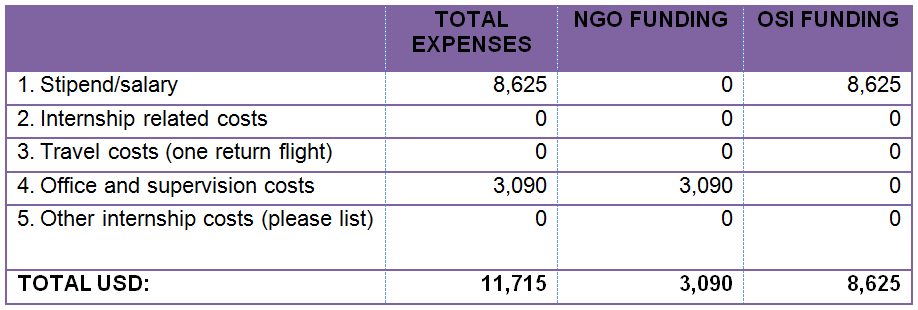
Grant agreement
|
The research planned in the framework of this project relates to the comparative analysis of the legislative and practical problems of Georgia in the area of freedom of information and issues of the transparent and accountable government to international standards.
View more →
|
| Development of e-Participation in Georgia |
East - West Management Institute / USAID |
2012-2013 |
$59,800 |

Title of the project: “Development of e-Participation in Georgia”
Financial Support of the Project: United State Agency for International Cooperation (USAID), “East-West Management Institute" (EWMI) program “Public Policy, Advocacy and Civil Society Development in Georgia” (G-PAC)
Budget of the Project: $ 59 800,00
Duration of the project: 01 June 2012- 31 May 2013
From 1 June 2012 to 31 May 2013 “Institute for Development of Freedom of Information” (IDFI), in cooperation with “Center for Post-Soviet Studies” (CPSS) is implementing a project “Development of e-participation in Georgia” with the financial support of the grant “Partnership for Change”, within the framework of the USAID program of “East-West Management Institute” “Public Policy, Advocacy and Civil Society Development in Georgia” (G-PAC).
The purpose of the project is, based on the research and analysis of the best international examples and practice of electronic governance and electronic involvement, and in order to assist development of modern e-communications in Georgia, to familiarize the Georgian society with the necessary tools for enhancing the level of their involvement in political planning and to find the ways to adopt and improve the governmental/civil platforms.
In order to achieve this purpose, the organization is planning to meet a number of goals/implement tasks:
- Taking into account the international experience, to prepare a research about the necessary techniques, innovative projects, platforms, necessary for e-participation and e-involvement;
- To define the components of e-involvement used by the Georgian public institutions and political parties and find out the existing challenges by studying the communicational elements of their web-sites and their social networks;
- To work out recommendations for Georgian public structures by studying foreign examples and mechanisms of e-participation;
- Based on the mentioned recommendations, to advocate the development of modern means of electronic format of communication between the society and Georgian government through the governmental web-space and e-engagement;
- With the help of social networks and new technologies, to inform the common citizens about the importance of e-involvement and the existing resources and leverages;
- In order to increase trust between the society and the public structures and enhance communication between them, to improve the already implemented initiatives and encourage new initiatives, to find new ways, organize discussions;
- To monitor the election campaign covered by electronic media.
The anticipated outcomes of the project are as follows:
- On the preparatory stage the methodology will be prepared;
- On the following stage, a study will be prepared, within the framework of which monitoring of social networks of the governmental institutions, political parties, media, public authorities and independent candidates will be conducted;
- Recommendations for the public sector and the political parties will be worked out;
- Recommendations on legal framework for development of ICT in Georgia worked out;
- A blog with constantly updated information will be created;
- Public discussions will be organized;
- Meetings with stakeholders will be organized;
- A survey the social network users will be conducted;
- Videos about e-participation will be prepared and uploaded to YouTube channel created for the project;
- Flyers on the main findings of the project will be prepared and distributed;
- Presentations of the first and final results of the project will be organized.
Contract
Grant agreement
|
The purpose of the project is, based on the research and analysis of the best international examples and practice of electronic governance and electronic involvement, and in order to assist development of modern e-communications in Georgia, to familiarize the Georgian society with the necessary tools for enhancing the level of their involvement in political planning and to find the ways to adopt and improve the governmental/civil platforms.
View more →
|
| Public Information Database - www.opendata.ge 2012-2013 |
Open Society Georgia Foundation and Open Society Foundations |
2012-2013 |
$61,000 |
 
Funded by the Open Society Georgia Foundation / Open Society Foundations
Project Budget- $61 000.00
Duration of the Project -June 2012- June 2013
In June 2012 Institute for Development of Freedom of Information (IDFI) extended the project “Public Information Database – www.opendata.ge“. Within the framework of the project it is planned to further refine and develop the information web-portal and develop the analytical dimensions. The implementation of the idea started in 2010 with the pilot project “Public information on-line database – Public information registry”, which was continued in March 2011 and ended in April 2012.
The existing resource database enables the population of Georgia, press and media means, non-governmental and international organizations to have an eye on the trends of spreading the public information and conduct online monitoring of reports, plans, spending, development of various authorities etc.
Within the framework of the project IDFI will create and develop information web-portal which will permanently display public information officially requested from public authorities for the following purposes:
- To increase the level of transparency and accountability of public authorities;
- To promote effectiveness and transparency of public finance expenditures;
- To promote development of freedom of information via establishment of e-democracy standards;
- To improve public control over public authorities via the involvement of the population, non-governmental sector and media;
- To increase the level of public awareness and civil engagement in the decision-making process of the public authorities.
The strategy of project implementation is as follows:
- The development of bilingual (Georgian-English) FoI public information web-resource;
- The establishment of database of up-to-date and socially significant public information;
- The continuous updating of the internet database via public information requests and alternative sources of public information.
- The permanent informing of the society and international organizations about the information resources of the database;
- Active advocacy of the issues of freedom of information;
- Activating and supporting the involvement of the society in discussing the issues of freedom of information.
In order to implement the abovementioned strategy IDFI is planning the following activities:
- Informational update of the database
- Coalition activity
- Technological improvement of the web-page
- Proactive social lobbying of the single database
- The compilation of resonant cases, the initiation of lawsuits and claims and the support of their publicity
- Publications prepared and issued within the framework of project
- Organizing get-acquainted meetings with the society interested in the outreach activities in the regions of Georgia.
The main novelties of the extended project:
By the end of the project in 2011-2012 IDFI has established special awards and nominations in order to reveal the most closed and nontransparent administrative organs, aiming at encouraging the public authorities and creating healthy competition among them. As a result of big interest of the society and the public authorities, the Institute is planning to give such ceremony systematic character.
Taking into account the lack of adequate processing of public information data by the Georgian investigative journalism, the Institute decided to develop its own analytical sources. During the project in 2011-2012 IDFI provided detailed analysis and record keeping of the received public information. Based on the public information the project team has revealed the public institutions, which incurred most spending on various activities during the second quarter of 2011. At the same time, a number of analytical articles have been prepared and shared:
- How Much will The Funding of the Members of Parliament Increase, if Their Number Is Increased By 40 –
http://www.opendata.ge/en#!lang/en/cat/project_researches/topic/34
- Freedom of Information in Georgia –
http://www.idfi.ge/?cat=researches&lang=en&topic=44&header=
- Lazika: Democratic Deficit in Public Decision Making Process
http://www.idfi.ge/?cat=researches&lang=en&topic=48&header=
- Information about the Bonuses Paid to the Governors and Heads of Municipal Boards in the I-II Quarters of 2011
http://www.opendata.ge/en#!lang/en/cat/news/topic/562
On the new stage of the project IDFI is planning to further develop and broaden the research component. IDFI will publish analytical notes and articles based on the obtained information on a regular basis. A special blog of www.opendata.ge will be created for this purpose: https://opendatablog.wordpress.com/
Grant agreement
|
Funded by the Open Society Georgia Foundation / Open Society Foundations Project Budget- $61000.00 Duration of the Project -12 months (June 2012- June 2013) In June 2012 Institute for Development of Freedom of Information (IDFI) extended the project Public Information Database www.opendata.ge. Within the framework of the project it is planned to further refine and develop the information web-portal and develop the analytical dimensions. The implementation of the idea star
View more →
|
| Research on Access to Public Documents |
USAID |
2012 |
$14,960 |

Title of the project: “Research on the Effectiveness of the FOIA Provisions in Georgia”
Financial Support of the Project: United State Agency for International Cooperation (USAID).
Budget of the Project: $ 14 960,00 (24 980 GEL)
Duration of the project: March 12- May 28, 2012
From March to May, 2012 “Institute for Development of Freedom of Information” (IDFI) under the G-3 program of the United States Agency for International Development (USAID) is providing the project: “Research on the Effectiveness of the FOIA Provisions in Georgia”. Project is aimed toadvance the level of access to public information, improve the existing practice of accountability and transparency of state authorities in Georgia.
Goals if the project:
Goal of the project is to establish better practice of transparency and good governance at governmental agencies (Ministry of Justice of Georgia, Civil Service Bureau, Competition and Procurement Agency, Chamber of Control, Government of the Autonomous Republic of Adjara) through implementing the best international practice of access to public information and identifying the existing problems and lacks in this field.
- Identify the factors which are impeding effective functioning of the institutional mechanisms of accessibility of public information in theG-3 partner institutions;
- Based on the sphere of activities of the public institutions, to establish/define public information of the biggest public interest and the most requested, in order to establish practice of publishing them in a proactive regime;
- Studying the best international practice of FoI provision (United States, UK/Scotland, Estonia);
- Elaborating the recommendation package in means of implementing them in the administrative proceedings of the G-3 partner state authorities.
Grant agreement
|
Goal of the project is to establish better practice of transparency and good governance at governmental agencies (Ministry of Justice of Georgia, Civil Service Bureau, Competition and Procurement Agency, Chamber of Control, Government of the Autonomous Republic of Adjara) through implementing the best international practice of access to public information and identifying the existing problems and lacks in this field.
View more →
|
| Monitoring of the Court System of Georgia |
EPF / EWMI / USAID |
2011 |
$49,720 |
  
Project Title: „Improving the Accountability and Transparency of the Georgian Courts“
Project is financed by: Eurasia Partnership Foundation (EPF), United States Agency for International Development (USAID), East-West Management Institute (EWMI).
Total Budget of the Project: $49 720.00
Duration of the project- 12 months.
In October 2011 the Institute for Development of Freedom of Information (IDFI) launched a project within the framework of a program of Eurasia Partnership Foundation “Initiative for an Independent and Transparent Judiciary”, which is aimed to support the development of accountability and transparency of the judiciary system in Georgia and the level of freedom of information in the country.
The main objective of the project:
The objective of the project is to increase the degree of accountability and transparency in activities of judiciary system of Georgia, the increase of availability of public information within the judiciary system via monitoring of E-Resources and visualization of various statistical data pertaining to judiciary field.
Tasks of the project:
- to increase the level of transparency and accountability of judiciary system;
- to support the efficiency and transparency of public finance expenditure;
- to promote the development of freedom of information via establishment of standards of E-Democracy;
- to improve social control over public authorities via engagement of citizens, non-governmental sector and media;
- to increase the level of trust of population towards judiciary system via development of transparent judiciary system.
Monitoring of E-Resources of judicial authorities of Georgia:
Along with development of information and communication technologies, the Internet has become important mechanism of effective control for society. In the modern world the Internet has significantly simplified the relationship between the government and the society, has fostered the permanent control over and the transparency of the activities of government. By means of the Internet, E-Resources of public authorities, including their official web-pages have become the most optimal means for direct contact between the state authorities and the society. In the aforementioned context highly important are the official web-pages of the judicial authorities, which must contain and publish necessary and interesting information for the society.
Within the framework of the project, the monitoring of information content and electronic component of web-pages of administrative bodies of judiciary system of Georgia shall be conducted by means of the methodology compiled on the basis of international practice and in accordance with the Georgian reality in order to determine the degree of information transparency and electronic governance (E-Accessibility and technical operability). The following official web-pages of judiciary authorities shall be the subject of monitoring:
The Supreme Court of Georgia: http://www.supremecourt.ge
Kutaisi Appeal Court: http://www.kutaisiappeal.court.gov.ge
Batumi City Court: http://batumi.court.gov.ge
Gori District Court: http://gori.court.gov.ge
Zestaponi District Court: http://zestafoni.court.gov.ge
Zugdidi District Court: http://zugdidi.court.gov.ge
Tbilisi City Court: http://tcc.gov.ge
Telavi District Court: http://telavi.court.gov.ge
Mtskheta District Court: http://mtskheta.court.gov.ge
Rustavi City Court: http://rustavi.court.gov.ge
Sachkhere District Court: http://sachkhere.court.gov.ge
Poti City Court: http://foti.court.gov.ge
Kutaisi City Court: http://kutaisi.court.gov.ge
Khashuri District Court: http://khashuri.court.gov.ge
Court of Jury: http://www.msajuli.ge
Constitutional Court of Georgia: http://www.constcourt.ge
The results of monitoring of each unit of judiciary system, the analysis of assessment and detailed recommendations shall be published on the web-page of Institute and shall be provided tothe coressponding administrative body individually.
By means of generalizing the monitoring results it shall be possible to elaborate the complex conception of development of E-Resources of judiciary system.
Processing of and visualization of statistical data:
It is possible to obtain large amount of statistical data of social importance within the judiciary system. Each court of law or the corresponding administrative body monthly, quarterly or annually publishes statistical data pertaining to its activities.
Within the framework of the project the fit-to Georgian reality software shall be created, by means of which the process of “visualization” of various statistical data within the judiciary system in Internet space (namely on web-pages and social networks) shall be simplified.
Project beneficiaries:
• lawyers (attorneys);
• legal experts;
• socially active citizens;
• experts;
• researchers;
• representatives of public sector;
• representatives of judiciary system.
Grant agreement
|
The objective of the project is to increase the degree of accountability and transparency in activities of judiciary system of Georgia, the increase of availability of public information within the judiciary system via monitoring of E-Resources and visualization of various statistical data pertaining to judiciary field.
View more →
|
| Monitoring of the Web-sites 2011 |
Open Society Institute, Open Society Georgia Foundation and National Security Archive |
2011 |
$64,000 |
  
Project Title: “Monitoring of Information (Internet) Resources of Public Authorities of Georgia”
Total Budget of the Project:$64 000.00
Project is financed by:
The Open Society Institute and The Open Society Georgia Foundation ($60 000.00)
The National Security Archive ($6 000.00)
Duration of the project- 12 months.
Overall Objective:
Promoting the development of freedom of information, e-Transparency and e-Governance by auditing official web-sites of public authorities.
In April 2010 the Institute for Development of Freedom of Information (IDFI) launched a project “Monitoring of Information (Internet) Resources of Public Authorities of Georgia”. Project is the extension of the activity that the IDFI carried out in 2010 - Monitoring of Governmental Agencies' Informational Recourses.
Within the project the IDFI will provide auditing of official web-pages of public bodies of Georgia to assess the level of electronic transparency and access to information.
The Aim of the Project:
- To increase the level of transparency of public authorities in Georgia;
- To promote the development of freedom of information;
- To initiate changes in Georgia legislation on Freedom of Information;
- To develop e-Governance and e-Transparency in Georgia.
Long-term Objectives:
The project“Monitoring of Information (Internet) Resources of Public Authorities of Georgia”targets the challenges of Georgian central and regional government institutions in the areas of their information transparency, electronic governance and electronic democracy. The work undertaken by the Institute aims to establish an open information space in Georgia; to increase public awareness of the rights provided under Freedom of Information; to achieve a higher citizen participation in regional (local) and central government processes; to improve skills and qualification of state officials in the areas of information transparency and electronic governance; and to put in place a system that will enable a more interactive dialogue between and among the representatives of local communities, CSOs, media, and government structures.
Short-term Objectives:
- To support the development of civil society and high democratic values by increasing the awareness of population (individuals, legal entities, governmental officials) about their right to request and access public information;
- To support publicity and openness of information that is of a public and social importance with every method and activity that is defined by law;
- To support evolvement of e-governance in Georgia, that will be of modern standards;
- To achieve advancement of investigatory journalism and to increase the quality of an independent media;
- To support governmental institutions in development of legislative base on freedom of information; To provide research and practical activities in means of improving and resolving problems in Georgian legislative system and enhancing democratic principles in the legislation;
- To participate in drafting and lobby for the passage of a democratic and detailed legislation on freedom of information – the Freedom of Information Act (FOIA) and the Public Online Information Act (POIA) which will regulate citizens’ constitutional right to search, request, have access to, receive, and disseminate public information. The POIA act will specifically regulate the on-line availability of public information.
Anticipate Results & Problems Solved:
The project(s) executed by the Institute will improve transparency of state institutions at all levels; it will facilitate the development of a more open, accountable and responsive government, thus improving the efficiency of the government agencies’ work. It will strengthen the civil society and promote civic engagement including citizen participation in requesting for public information and in other government processes. Finally, the project(s) will put into place stronger mechanisms for carrying out coordinated work between non-governmental actors and state officials to address issues of common concerns.
Beneficiaries:
- Citizens of Georgia (and of other countries) who benefit from the increased government accountability and openness;
- Government of Georgia, central and municipal public agencies that benefit from an improved inter-agency communication, increased work efficiency and an overall advancement towards the modern standards of e-governance and e-democracy;
- Public officials who will acquire new skills and qualifications in the field of e-governance;
- Journalists and representatives of the independent media;
- Civil society organizations (CSOs) and private sector representatives;
- International Society (international organizations, donor organizations, diplomatic corps) who can better monitor and audit the development of the democratic processes in Georgia via improved and transparent official government web-space of Georgia);
- Wide sector of the society in general.
Carrying out the tasks
In the framework of the Project the Institute will address issues of transparency and accountability of the Georgian public administration on the central level.
- To monitor over those ministries and legal entities of public law (LEPLs) that were studied during the Monitoring 2010 project to enable a continuous reporting on government institutions of a particular interest or a greater importance;
- To expand the target group of the project “Monitoring of Information Resources” and to include all bodies of the Executive Branch of the Government of Georgia (Agencies and sub-agencies under the Ministries and the Government of Georgia, Regional Governments), Independent Regulatory Bodies, Legislative Branch of the Government of Georgia;
- To develop and expand the existing monitoring methodology;
- To provide advocacy work for the Freedom of Information legislation change in Georgia;
- To work on a new justice initiative which will outline and regulate standards of online public information availability for government institutions;
- To emphasize the need for an active outreach to public institutions and a non-commercial based engagement via providing recommendations and consultations to the monitored public authorities;
- To raise the public awareness towards the issue of freedom of information, as well as to perform a successful advocacy of the organization’s activities and the effective delivery of Institute’s objectives to a wider public by the media, social networks and the Institute’s web-page;
- The IDFI will continue to use social media as a powerful tool for maintaining an interactive communication with public of Georgia;
- Upon the completion of the monitoring, the IDFI will carry out a comprehensive analytical work that will include several assessments of the project and its results.
Other issues to be covered within the framework of the Monitoring 2011 program include:
- Strengthening of the civil society and popularization of democratic citizen engagement in operational governance processes;
- Building close cooperation with an independent media and vitalizing investigative journalism;
- Developing and applying tools that will enable closer and more productive collaboration between and among the representatives of the Civil Society Organizations, local community and the independent media;
- Adopting advanced applications and mechanisms for effective and systematic communication with public authorities and introducing a whole new interactive dimension to the relationship between the Government of Georgia and non-state actors.
Grant agreement
|
Within the project the IDFI will provide auditing of official web-pages of public bodies of Georgia to assess the level of electronic transparency and access to information.
View more →
|
| Stalin’s Lists on Georgia |
Heinrich Böll Foundation South Caucasus Regional Office and the Embassy of Switzerland in Georgia |
2011-2012 |
€20,920 |
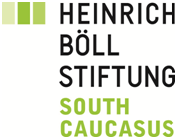  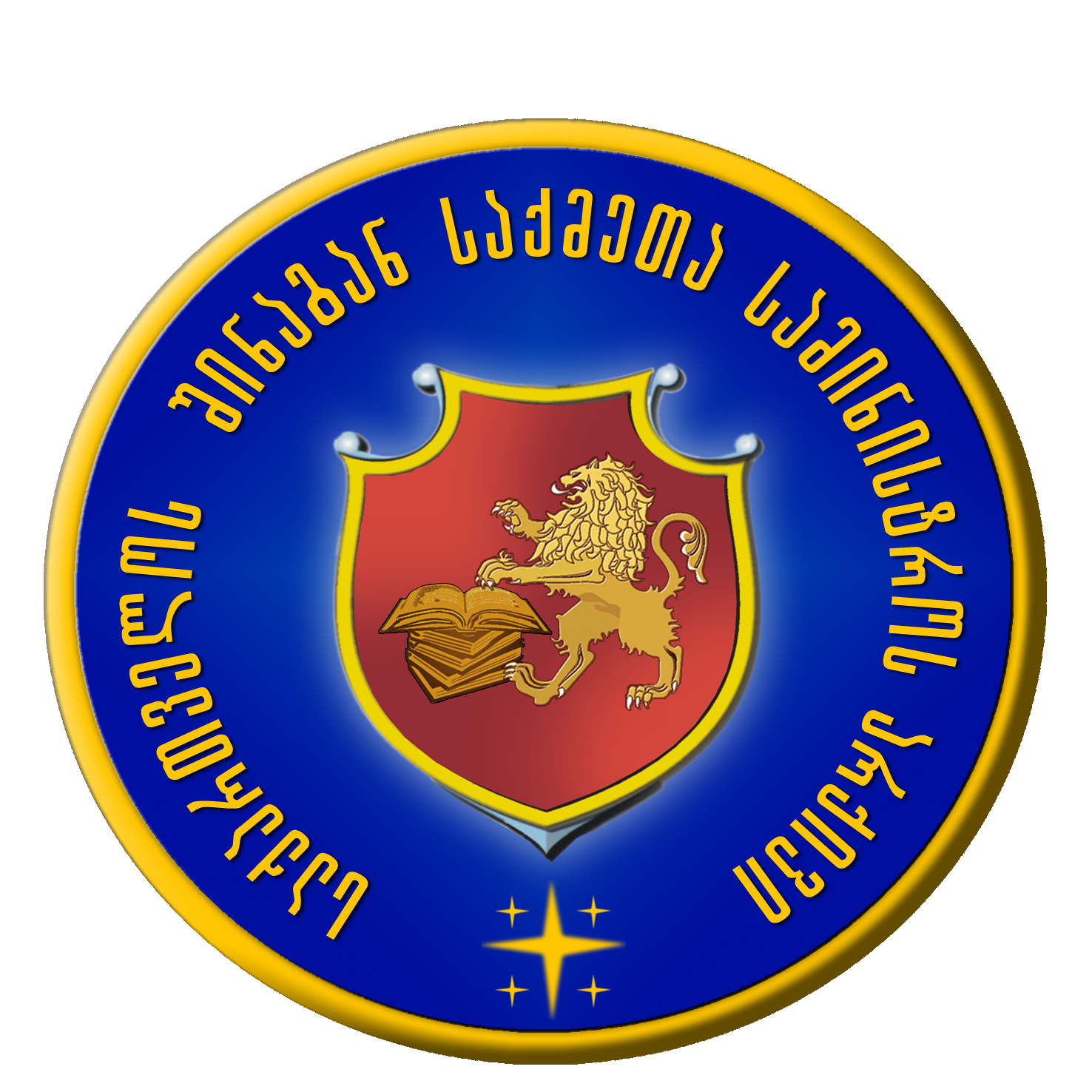 
Project Title: “Stalin’s Lists on Georgia”
Total Budget- 20,920.00 EURO
Duration of the project- March 2011-October 2012
Project is supported and financed by the Heinrich Böll Foundation South Caucasus Regional Office (10,365.00 EURO) and the Embassy of Switzerland in Georgia (10,550.00 EURO)
Project will be implemented together with the LEPL Archive of the Ministry of Interior of Georgia.
The book about “Stalin’s Lists” will present information about the victims of the “Great Terror” of 1937-1938 in Georgia, particularly about the persons who were sentenced to extreme penalty by Stalin and other Politburo members (total number of the repressed people in Stalin's Lists from Georgia is 3616). The Book will be based on the information that was received from the International Society "Memorial": http://stalin.memo.ru/index.htm
Documental and photo materials will be used from the archive of the “The Society for Immortalizing and Supporting Victims of the Soviet Times Repressions “Memorial” of Georgia.
People will be able to search the names and information about their ancestors, who became victims of repressions of 1937-1938. At the same time population of Georgia will learn how Stalin and Beria themselves were involved in decision making process about purges of 1937-1938 and this will destroy the stereotype of Stalin as a “Positive Great Georgian Hero” that might still exist in a part of the Georgian population. Providing research and publishing the book about the “Stalin’s Lists” will be the real step forward to de-Stalinization, revision of all stereotypes about this issue, it will cause discussions about the Stalin’s role in history and it will raise awareness of people about the truth of Stalin’s Epoch. Also this will be the commemorating book of the victims of “Great Terror”. At the same time this book will be a new word towards the development of Soviet Studies in Georgia and additional significant input in Sovietology on the international level.
In the framework of the project, IDFI together with the LEPL Archive of the Ministry of Internal Affairs of Georgia plan to work on the book of Stalin’s Lists. The book will include full list of the people listed in the Stalin’s list on Georgia and on each person there will be given standard information based on the archival materials from Georgian Archives (former Archive of the Ministry of State Security of Georgia (KGB) and the Archive of the Central Committee of Communist Party of Georgia) and will include data taken from personal cases (files) of the prisoners, protocols of “NKVD Troika” sessions, party member’s work sheets, personal and family archives and other sources of information. Foreword about the “Great Terror of 1937-1938” and about the “Stalin’s Lists” will be also included. Vocabulary of terminology and abbreviation will be written. Statistical data according to several parameters will be also provided in the book. Book will be published in Georgian and in Russian.
The digital version of the book in Georgian and Russian will be available on the web-sites of the Institute for Development of Freedom of Information and partner organizations of the project.
Contract
Grant agreement
|
The book about “Stalin’s Lists” will present information about the victims of the “Great Terror” of 1937-1938 in Georgia, particularly about the persons who were sentenced to extreme penalty by Stalin and other Politburo members (total number of the repressed people in Stalin's Lists from Georgia.
View more →
|
| Public Information Database 2011-2012 |
Open Society Georgia Foundation |
2011 |
$59,978.43 |

Title of the project: "Public Information Database - www.opendata.ge"
Funded by the Open Society Georgia Foundation
Project Budget- $59,978.43
Duration of the Project -12 months.
In March 2011 Institute for Development of Freedom of Information launched a project “Public Information Database – www.opendata.ge“. It is planned to refine and develop the information web-portal within the framework of project, which is the continuance of the project named “Public information on-line database – Public information registry”(pilot project) implemented in 2010 by the Institute for Development of Freedom of Information.
The existing resource database enables the population of Georgia, press and media means, non-governmental and international organizations to observe freedom of information dissemination in a real-time format and conduct an on-line auditing of reports, plans of development, use of budget funds etc. of the authorities.
Within the framework of project IDFI will create and develop information web-portal which shall permanently display public information officially requested from public authorities for the following purposes:
- the increase in rate of transparency and accountability of public authorities;
- the promotion of the efficiency and transparency of public finance expenditure;
- the promotion of freedom of information development via establishment of e-democracy standards;
- the improvement of public control over public authorities via the involvement of the population, non-governmental sector and media;
- the increase in rate of public awareness and engagement within the decision-making process by public authorities.
The Strategy of Project Implementation is the Following:
- the development of unified FoI public information web-resource;
- the establishment of up-to-date and socially significant public information database on the basis of unified FoI information web-resource;
- the permanent update of the Internet database via public information request and other means of public information collection;
- the permanent process of informing the society/international organizations on information resources of Internet database.
- For the purposes of implementation of the abovementioned strategy IDFI plans to take the following steps:
Information Update of Database
- the regular update of web-pageand the refinement of English version of the web-page;
- The request for various types of public information held by public authorities of Georgia (more than 150 public authorities - state bodies of executive, legislative and judicial branches of government, legal entities of public law, independent regulatory bodies, representative and executive bodies of local self-government, Administration of South Ossetia, governors’ administrations)on the basis of already established practice.
Coalition Activity
The partner organizations of project (Transparency International Georgia, Georgian Young Lawyers’ Association, Open Society Georgia Foundation, Green Alternative) shall be involved in the activities of IDFI as well as in the process of implementation of pilot project, which will provide IDFI with the public information requested and collected by them.
Technological Improvement of the Web-page
- the refinement and improvement of integrated technical and visual data;
- the visualization of data of high social importance by means of establishing specially designed software;
- the integration of project statistics in web-page by means of the software and establishment of other web 2.0 innovations.
Proactive Social Lobbying of the Unified Database
Permanent provision of information to the society about data uploaded to web-resource by means of the following proactive strategies: the use of social networks, permanent involvement and provision with information to the member journalists’ working group of the institute media club, the co-ordinated activity of non-governmental sector, social polls, the co-operation with international non-governmental sector.
The Compilation of Resonant Cases, the Initiation of Lawsuits and Claims and the Support of Their Publicity
In case of non-disclosure of public information, the act of ignoring of request to release the public information or incomplete public information provision by the public authority the corresponding administrative claims shall be filed by the institute. The resonant cases shall be compiled on cases of high importance. The compiled resonant cases shall be disseminated by means of media and press. In addition, the social nominations shall be assigned for the most non-public and non-transparent state bodies.
Publications Prepared and Issued within the Framework of Project
The publication of quarterly (once in three months) public information request report. In addition, the description of negative practice revealed in the process of public information request within the period of three months. The annual public information request report shall total the results of yearly activity, statistics, tendencies and practice.
The preparation and issue of the Freedom of Information Guidebook.The guidebook shall comprise the existing FoI legislation, the descriptive and definitive issues concerning public information and public authorities, the procedures of request for public information and other corresponding type of information.
Grant agreement
|
Within the framework of project IDFI will create and develop information web-portal which shall permanently display public information officially requested from public authorities.
View more →
|
| Monitoring of the Web-sites 2010 |
Open Society Institute and National Security Archive |
2010 |
$45,000 |
 
Project Title: "Monitoring of Governmental Agencies Informational Recourses"
Project is financed by the Open Society Institute ($30 000.00) and the National Security Archive ($15 000.00)
Budget of the Project-$45 000.00
Duration of the project-6 months.
In July 2010 Institute for Development of Freedom of Information launched a project “Monitoring of Governmental Agencies Informational Recourses (official web-sites)”. Project is financed and supported by the Open Society Institute ($30 000.00) and the National Security Archive ($15 000.00).
Within the project the IDFI will provide auditing of official web-sites of state organizations to assess the level of their transparency and access to information. The project is the developing of the previous project that was initiated by the IDFI in 2009 (Auditing of Official Web-Sites of Executive Authorities (Ministries) of Georgia).
The Aim of the Project:
- To increase the degree of transparency of public institutions;
- To promote the development of freedom of information;
- To develop Electronic Governance in Georgia.
Long-term Objective of the Project:
- To promote the development of freedom of information and electronic governanceby auditing official web-sites of public institutions.
Overall objective:
- Promoting the development of freedom of information and electronic governance by auditing official web-sites of public institutions.
Strategy to follow:
- Auditing official web-sites of the public institutions of Georgia;
- Calculating and analyzing ratings by estimating the results of the auditing of the web-sites;
- Preparing recommendations for public institutions on freedom of information and efficient modes of electronic governance (and proactive lobbing for the changes);
- Preparing reports on the existing situation in the realm of freedom of information in Georgia.
The fundamental function of any government is to serve its citizens based on the principle of equality and justice. It should dedicate itself to civic engagement with open effective dialogue with a society in which there is no distinction between "have and have-nots" and where nobody is marginalized from the main stream.
To build a successful democratic state and civil society it is essential to have an open and transparent political system on the one hand and an active society aware of their duties and rights on the other.
Good governance assumes the necessity of balancing interrelation between these two aspects. Maintain in the cohesive force that is required by society to integrate and follow state activities in a more interactive manner helps to strengthen state legitimacy and relations of trust between public officials and ordinary citizens.
Good governance cannot function without facilitating transparency, i.e. right to information. To facilitate transparency and accountability government first and foremost has to improve access to information and services for citizen and businesses.
In Georgia, where despite the rapidly growing web-space, the culture of electronic democracy is just emerging the need for monitoring these processes is especially critical and urgent.
Development of Georgian web-space will create conditions for full realization of citizen's right to search, request, access and disseminate information. Empowering of people will help making our government more accountable and responsive to the demands and needs of the citizens.
It is due to the above factors that addressing the issue of freedom of information remains a top priority and a vital component of our organization’s strategy.Institute for Development of Freedom of Information continues to execute and advance a project (Monitoring of Governmental Agencies' Informational Recourses)developed last year which aims to facilitate citizens' access to information and enabling e-governance in the country.
Although the newly established Institute was not that famous in the NGO sector when the pilot-project was finished, the outcomes of the project and the work done was met with a big interest. This can be explained with the several factors. First of all this is the innovative idea, because this was the first case in Georgia when the accent was so distinctly made on the transparency of the governmental web-space. Also, we must take in consideration the fact, that generally a new Georgian society is being involved more actively in the Internet reality. If before Internet was only the source of exchange of information, now time by time it is becoming to be used as the exchange of various social-economic services.
The main goal of the project is to support the development of transparent informational space in Georgia by undertaking research activities and analysis on the Georgian governmental web-space. The first auditing carried out by the Institute covered only the Ministries of Georgia, while research undertaken within a framework of current project is targeted on presenting a wider picture about governmental web-space to the Georgian society. An estimated number of over 45 official web-sites of state agencies will undergo a thorough audit by our Legal Expert team. General picture will show the real existing problems and the comparative analysis will put forward those of tendencies for establishing e-governance and electronic democracy in Georgia.
The main challenge of this project is not just to undertake monitoring and evaluation activities and to present the general picture of the Georgian governmental web-space, but to achieve real changes according to plans of the Institute for Development of Freedom of Information. With that in mind the strategy of the research is targeted on creation of a concrete environment for developing of web-space between governmental structures. By establishing and maintaining an interactive channel of communication with monitored public institutions this project aims to raise the sense of internal competition between the governmental bodies, consequently resulting in a positive shift towards developed within the web-space.
Executive Strategy
Purpose of the primary study conducted by the Institute was to find out as to what extent the state information resources are available and what portion of information is published on official web-sites of state authorities. Besides, qualitative indices of published information were rather important. At the initial stage of the study, only assessment was made aimed at detection of common challenges and existing shortcomings.
The strategy of current project has remained intact in its essence however it is now based on more proactive methods. Accents are now made not only on the relations with the state institutions but also on the civil participation. An interactive strategy is based on three components. It is oriented on:cultivating productive working relations with state structures; actuating media and expert resources;and on those of social networks for active public participation.
By the completion of each monitoring session preliminary results and a short recommendation list is sent to the government agency to encourage and develop a functional co-operative engagement on the basis of web improvement initiatives.
To achieve a wider media and expert interest the Institute is preparing the electronic bulletin and publishing it on the IDFI web-site. The Institute is then sending the electronic bulletin to the interested research centers and institutions, nongovernmental organizations, international organizations and foundations, and media sector.
Spreading of the monitoring results to a wider public using a number of social networks (namely Facebook http://www.facebook.com/pages/IDFI/111225785601207, blogs and Internet forums) is effective in raising the interest and awareness among the citizens and enables a better public participation in discussions of the issue.
Grant agreement
|
Within the project the IDFI will provide auditing of official web-sites of state organizations to assess the level of their transparency and access to information.
View more →
|
| Public information database 2010 |
Open Society Georgia Foundation |
2010 |
$26,972.19 |

Project Title: Public information on-line database Public information registry
Funded by the Open Society Georgia Foundation
Project Budget: $26,972.19
Duration of the Project – 6 months.
In September 2010 Institute for Development of Freedom of Information lunches a project “Public information on-line resource database – Public information registry”. An online resource database of public information developed in the framework of this project will enable the population of Georgia, press and media means, non-governmental and international organizations to observe freedom of information dissemination in a real-time format and conduct an on-line auditing of agencies’ operations, proposals and use of budget funds.
The Aim of the Project:
- To improve the level of transparency and accountability of the government agencies. To show support in respect to increasing the efficiency and transparency of public financial expenditures;
- To facilitate the development of freedom of information through adopting modern standards of electronic democracy;
- To enhance public control over government agencies through active engagement of the population, non-governmental sector and media.
Transparency and accountability of government structures, participation of the civil society and media in the planning and decision making process, enhancement of mutual trust between society and government – all these concepts are in direct connection with the modern e-Governance. Together with the advance of information and communication technologies, Internet has become an effective tool of government control.
In the modern world, Internet plays a pivotal role in making interactions between the government and the rest of the society easier. It supports governing transparency and allows a constant control over the governmental activities. With Internet, usage of official web-pages of governmental institutions became optimal way of a direct interrelationship between governmental structures and the society.
Despite the rapidly developing Georgian web-space, there is an evident lack of progress on electronic democracy manifested by the scarcely presented public information on official web-sites. Therefore filling the informational vacuum by creating informational resources will mean a major step toward fulfillment of citizens' fundamental rights – to search, to request, and to freely access public information.
For this reason the Institute for Development of Freedom of Information funded by The Open Society - Georgia Foundation launches a new project “Public information on-line resource database – Public information registry”. An on-line public information database can become one of the effective tools for increasing transparency and accountability of the government sector. Its ability to frequently update information could be viewed as yet another way of the public control. An on-line resource database of public information will enable the population of Georgia, press and media means, non-governmental and international organizations to observe tendencies of the freedom of information dissemination in a real-time format as well as conduct an on-line auditing of different agencies' operations, proposals, use of budget funds, dynamics of growth and other subjects. An on-line public information resource database should have an advanced search option that is structured based on the list of public institutions and thematic topics.
The database will cover a wide range of topics and will incorporate public information resources of government institutions. In each thematic section of the website we will display public information released by different government agencies – public officials' asset declarations, budget, state programs, payroll funds, announced auctions and tenders, statistics of the public information release, premise and reserve funds of various inter-agencies, financial statements of executed and proposed projects, staff employee ratio, expenditures, projects planned or executed by the government agencies and other information. The user will be able to locate needed information in the relevant thematic bloc as well as by pointing the concrete government agency.
Institute's Expert team will undertake statutory consultations with other non-governmental organizations and foundations working in the relevant field (IT Georgia, GLYA, OSGF). In this collaborative efforts the Institute will: conduct a thorough analysis of the Georgian legislation on public information; will develop a database of the governmental and non-governmental public information; will undertake a comparative study of the international experience on the issue, analyzing its functionality and development, will conduct project media poles (during the meetings and through the on-line questionnaires) to identify the most pressing public information issues. Based on the conducted study the Institute’s expert team will build an on-line public information resource database. Registry's search option will allow users to locate needed information by using the thematic search as well as with the drop-down list of the government institutions.
One of the goals of the project is to ensure that the web resource database if continuously updated. An informational acquisition method of the public information on-line registry will be based on four components: methodical requests for public information from the state agencies; obtaining the public information through the collaboration with the state authorities; displaying the public information already obtained by other non-governmental organizations and through the regular monitoring of the government agencies’ official web pages conducted by the IDFI.
In terms of its information completeness and recency the resource database should develop in three steps, among which the priority is given to the public information of the Georgian government’s executive institutions – the ministries. During the following steps the resource database will further expand to include public information obtained from the Georgian government agencies, sub-agencies, regional governments, municipalities, self-governing agencies and government trustees.
For the purpose of development of freedom of information a coordinated work of the non-governmental sector is especially important. The public information resource database developed in the framework of the project can serve as a platform for such collaboration. Non-governmental organizations participating in the project will request high priority public information (such as excessive spending by the government agencies) in a coordinating manner based on their experience and research work. In the case of unlawfully delaying the release of public information, it will file civil lawsuit against the violator (GYLA). Filed cases will become public with the help of mass media and the press. In the case of a denial to release public information, corresponding coalition conclusions will be made and distributed among the public through the use of the media and press. At the same time, base on the files cases the least public and the least transparent agencies will be nominated.
Georgian press and media are considered to be main beneficiaries of project and of the public information resource database created within its framework. It is them who should benefit from the accessibility of public information and it is them who should use it as a tool of public control over government. Therefore it is very important to take into consideration opinions of the media representatives when developing the resource database. An active collaboration with the media and exchange of experience will be especially beneficial to both sides. This will help in developing the strategy and tactical plan for making the project a constantly renewing and interactive public domain. To assist such development a media club will be established and the journalists interested in freedom of information issues will be invited. Meetings of the media club will be conducted on a regular basis which will help to increase publications and media investigations on the discussed subject.
Grant agreement
|
The aim of the project is 1) to improve the level of transparency and accountability of the government agencies. To show support in respect to increasing the efficiency and transparency of public financial expenditures; 2) to facilitate the development of freedom of information through adopting modern standards of electronic democracy; and 3) to enhance public control over government agencies through active engagement of the population, non-governmental sector and media.
View more →
|
| Project Transparent Archives |
Heinrich Böll Foundation South Caucasus Regional Office and Embassy of Switzerland to Georgia |
2010 |
€4,950 |
 
“Publishing of the Collection of Archival Documents” (Archival Documents in Relation with the Events Developing in Georgia from the 5th to the 9th of March of the Year of 1956. - 4950 Euro
(Project is supported by the Heinrich Böll Foundation South Caucasus Regional Office and Financed by the Embassy of Switzerland to Georgia)
With a joint project the Institute for Development of Freedom of Information, The Archive Administration of Ministry of Internal Affairs of Georgia, with the support of the Heinrich Böll Foundation South Caucasus Regional Office, financed by the Embassy of Switzerland in Georgia will work on the project “Publishing of the Collection of Archival Documents” (Archival Documents in Relation with the Events Developing in Georgia from the 5th to the 9th of March of the Year of 1956. Project Budget is 4950 EURO.
The Institute for the Development of Freedom of Information (the IDFI), which aims at the development of archive business in Georgia by making careful studies of the documents and afterwards by publishing those documents in periodicals, has agreed with the above-mentioned Administration of MIA of Georgia to invite qualified scholars to study the archive documents in many ways and afterwards to publish them as subject periodicals.
Within the frameworks of the project, the scholars guided and supported by the IDFI and the Archive administration of ministry of internal affairs of Georgia will search for, select, examine and study related documents. The selected documents will be published in collection periodicals strictly according to the originals and will be accompanied by explanations of scholars and related vocabulary. The electronic version of the publication will be uploaded on IDFI web-page and will be accessible for everyone by internet.
Such a collection of documents will enable both scholars and the society in general to get to know and understand the real environment of the Soviet way of being, which for almost 70 years was hidden and known as classified information. The first collection of works will be dedicated to the events developed in the 5-9 March of 1956 when soviet troops execute first antigovernment riots in Soviet Union. Due to lack of information, it is not known till now, what was the realm of these events. Was this just the protest of the Georgian society against Nikita Khrushchev’s new policy against the Personal Cult of Stalin or the protest with ethnic content? Most of the history of Soviet Georgia is still unstudied and the series of the publication of archival documents will help to fill that gap.
Contract
Grant agreement
|
IDFI aims at the development of archive business in Georgia by making careful studies of the documents and afterwards by publishing those documents in periodicals, has agreed with the above-mentioned Administration of MIA of Georgia to invite qualified scholars to study the archive documents in many ways and afterwards to publish them as subject periodicals.
View more →
|



























